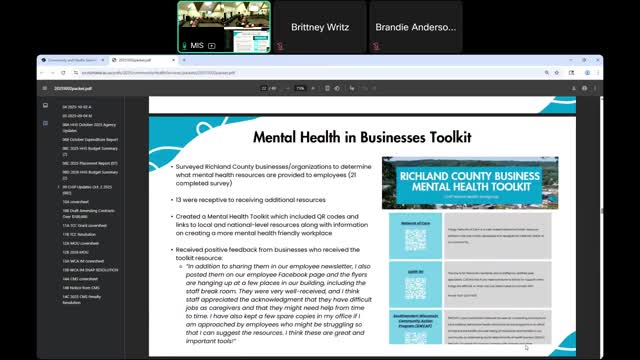Article not found
This article is no longer available. But don't worry—we've gathered other articles that discuss the same topic.

Richland County committee elects leadership, approves provider contract increases, grants and penalty payment

Richland County public health outlines mental health and substance-misuse initiatives, business toolkit and trainings underway

